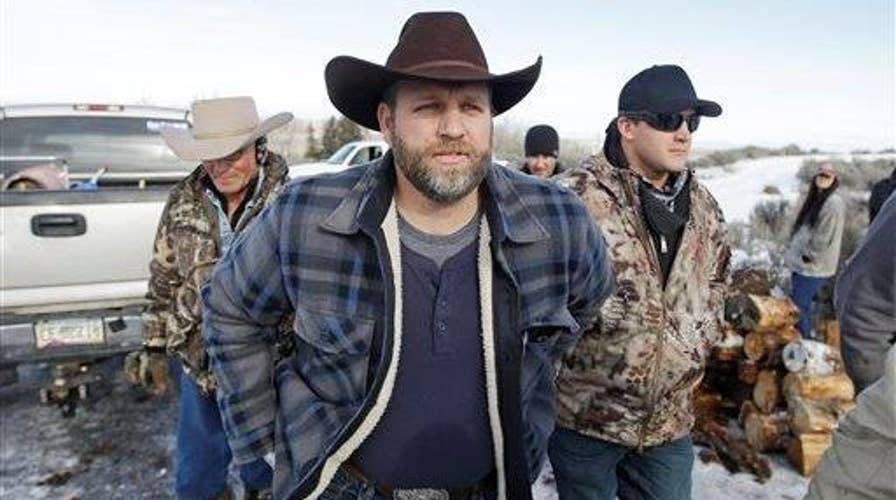Oregon sheriff: Armed group needs to pick up and go
Oregon community ready for group occupying government building to leave
BURNS, Ore. – The occupation of national wildlife area by a small, armed group upset over federal land policies stretched into its second week as the mother of the group's leader asked supporters to send supplies - everything from warm blankets to coffee creamer.
The group that seized the Malheur National Wildlife Refuge in Oregon's high desert country on Jan. 2 planned no media briefings. It was quiet at the entrance to the refuge Sunday.
The leader of the occupation, Ammon Bundy, has repeatedly rejected calls to leave buildings at the refuge despite pleas from the county sheriff, from many local residents and from Oregon's governor, among others. He has said the group will leave when there is a plan to transfer control of federal land to locals.
So far, the authorities have not moved in to remove Bundy's group. Ammon Bundy is the son of rancher Cliven Bundy, who was involved in a 2014 Nevada standoff with the government over grazing rights.
On Saturday, Ammon Bundy's mother, Carol Bundy, sent an email to supporters asking them to send her son's group supplies from a list of more than 80 items, including sleeping bags, wool socks, cigarettes, toiletries, food, coffee and "French Vanilla Creamer."
While things were quiet at the refuge's entrance Sunday, on Saturday a separate group of armed men arrived but left several hours later after occupation leaders told them they weren't needed.
The Pacific Patriot Network showed up Saturday in a convoy of about 18 vehicles, carrying rifles and handguns and dressed in military attire and bulletproof vests. They said they were there to help with security. They departed the refuge area after LaVoy Finicum said the network's help was appreciated, but "we want the long guns put away."
The standoff is the latest flare up of tensions over federal management of Western lands.
The federal government manages most of the land in many Western states, including 53 percent of Oregon. While ranchers and others object to what they say are unfair rules, environmentalists say mining, logging and ranching have run roughshod for decades on public land and left a legacy of pollution for taxpayers to clean up.









































